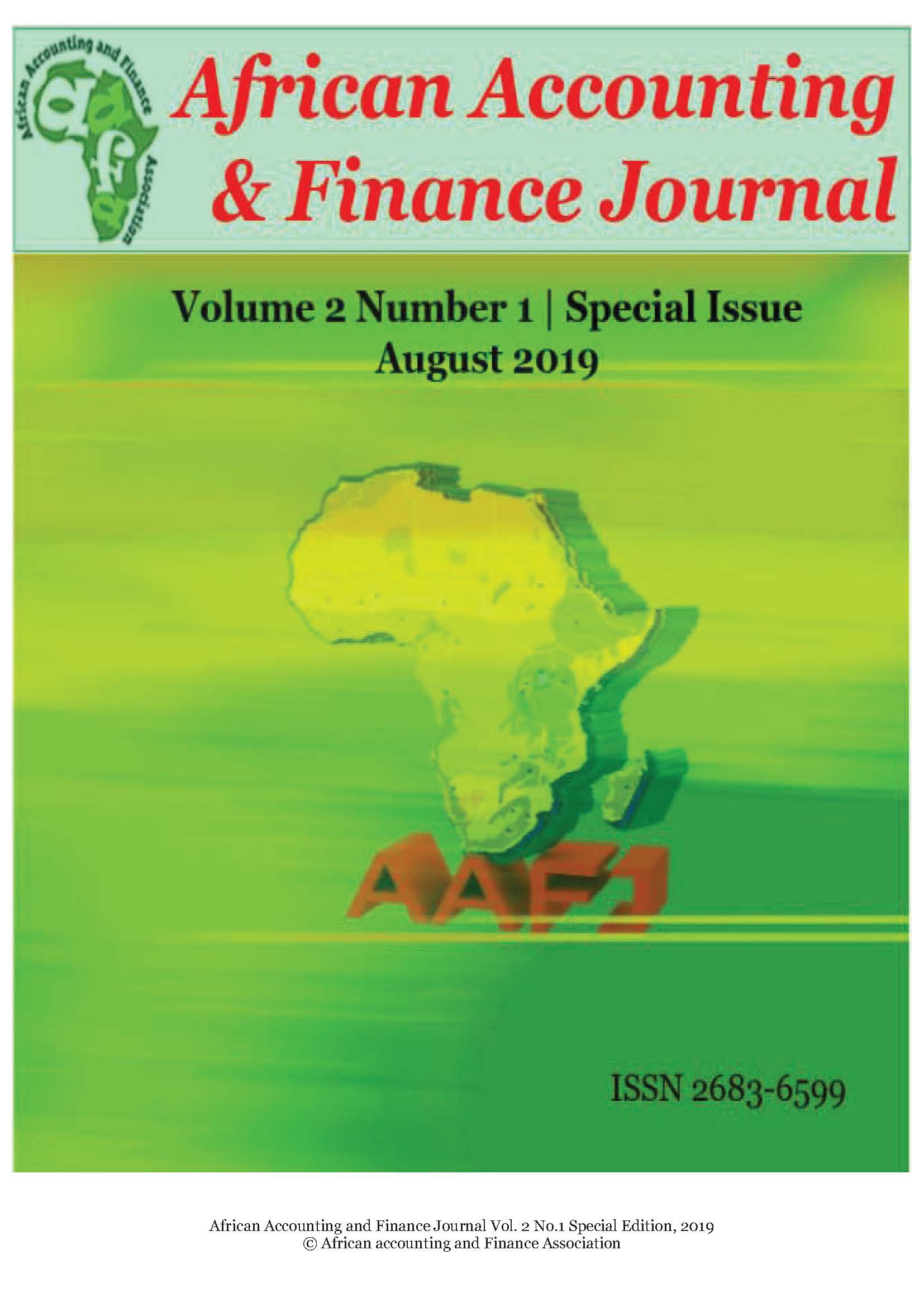Does Public Transparency and Accountability Impact Sustainable Development Goals? A Case Study of Selected African Countries
DOI:
https://doi.org/10.26686/aafj.v2i1.9740Keywords:
African Countries, Accountability, Governance, Public transparency, Sustainable development goalsAbstract
Purpose: This study examines the impact of public transparency and accountability on Sustainable Development Goals (SDG) of selected African countries for the period from 2016 to 2017.
Design/methodology/approach: The study adopts hierarchical regression method to determine the impact of public transparency and accountability on SDG performance in Africa. The study examined ten (10) African countries selected randomly from each of the different geographical zones. Two countries from each geographical zones; Nigeria and Ghana from West Africa region, Cameroon and Gabon from Central Africa region, Kenya and Uganda from East Africa region, Egypt and Morocco from North Africa region, South Africa and Zambia from the South African region. SDG was the dependent variable, measured through Sustainable Development Goal Index (SDGI) while independent variables which are public transparency and accountability were measured using Corruption Perception Index (CPI) and Accountability Index (AI) while the study controlled for other variables.
Findings: The empirical evidence presents mixed results, the finding shows that public transparency (CPI) is positively and significantly related with SDG performance while accountability (AI) presents a negative and insignificantly relationship with SDG performance for selected African countries. Also, the findings reveal that other variables such as global competitiveness index (GCI), global peace index (GPI), human development index (HDI) present a negative and insignificant relationship with SDG performance while world governance index (WGI) and environmental performance index (EPI) reveals a positive and significant relationship with SDG performance. The findings also observed that the inclusion of the control variables increased the adjusted r2 from 51% to 62%.
Practical Implications: This study’s findings call for improved public transparency, strong institutional framework, improved advocacy for good governance, holding both private and public institutions accountable for their actions. Research Limitation: The study was limited by sample size which resulted in only 20 observations. It also suffers from the limitation of robustness in the empirical result. However, it sets the tone for future empirical research on the subject matter.
Originality/value: To the best of the authors’ knowledge, this is the first empirical study that examined public transparency and accountability within the context of achieving SDG in Africa. The study, therefore, contributes to growing literature in the area of accounting, accountability, and SDG research in Africa.
Downloads
Downloads
Published
Issue
Section
License
Papers and contributions become the legal copyright of African Accounting and Finance Association unless otherwise agreed



